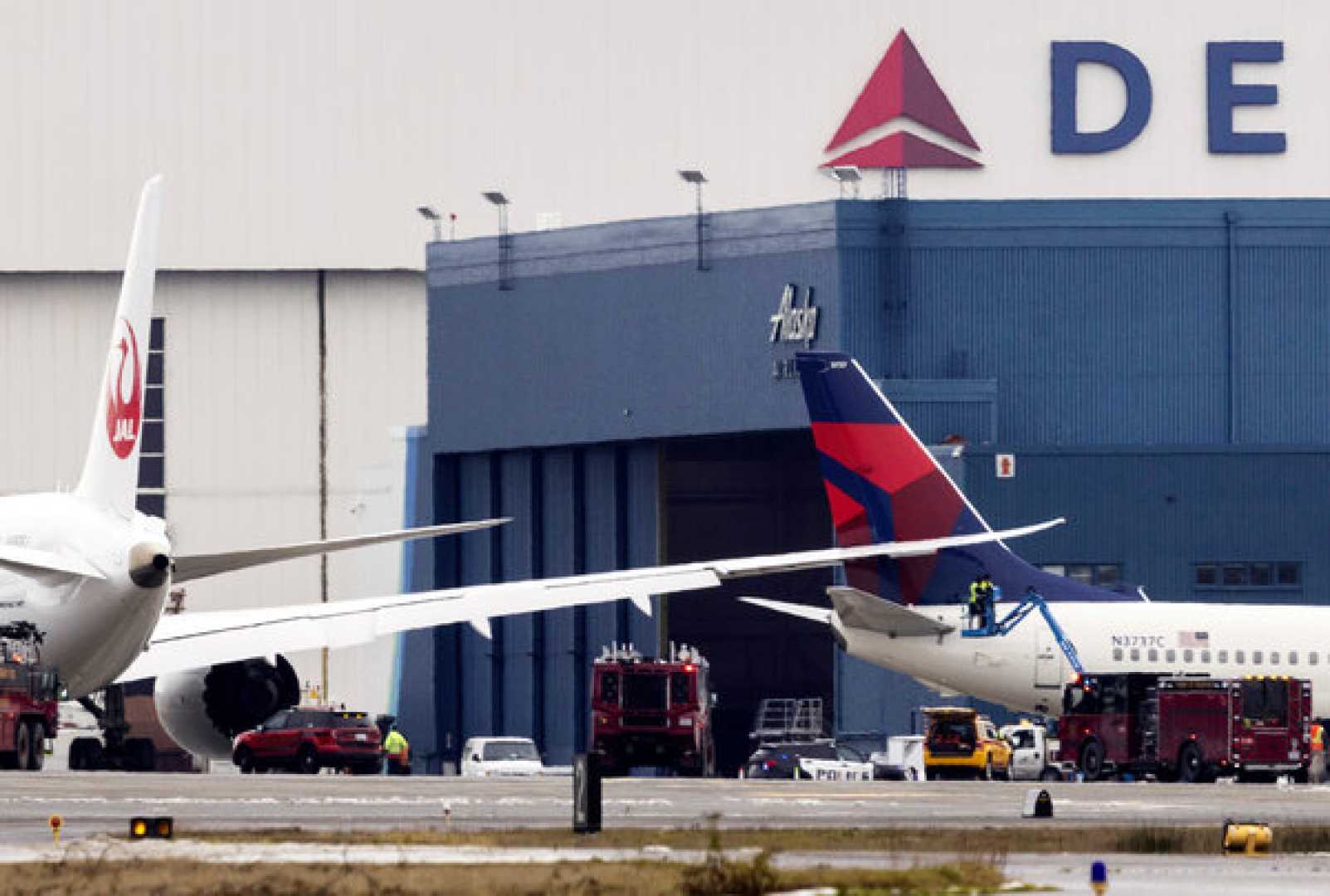Business
Delta Air Lines Scales Back Expansion Amid Dropping Demand

SEATTLE, Wash. — Delta Air Lines announced on April 9, 2025, that it would not expand its flying capacity in the latter half of the year, citing disappointing bookings as a major factor. CEO Ed Bastian criticized the current economic approach under President Trump‘s administration, describing it as ‘the wrong approach’ to addressing the waning demand for travel.
The airline projected a potential decline in second-quarter revenue of up to 2%, which contrasts with Wall Street’s expectation of a growth of 1.9%. Delta also forecasted adjusted earnings per share of $1.70 to $2.30, below the analysts’ average estimate of $2.23 a share.
Last month, Delta lowered its first-quarter earnings outlook due to weaker-than-expected demand in both corporate and leisure travel segments. Despite being the most profitable U.S. airline, Delta’s cautious stance highlights growing concerns among corporate leaders over consumer spending habits.
Bastian indicated that the last few weeks had seen a decrease in both consumer and corporate confidence. ‘In the last six weeks, we’ve observed a corresponding reduction in broad consumer confidence and corporate confidence,’ Bastian told CNBC, emphasizing the shift in demand since January.
The outlook for travel demand has changed rapidly, with Wall Street analysts expressing fears of declining demand for airlines. Bastian reported that both main cabin bookings and corporate travel have shown weakness as companies reevaluate business trips amidst economic uncertainties introduced by government policies.
While some sectors of travel, such as international and premium flights, remain stable, Delta had originally planned a capacity increase of 3% to 4% in the second half of the year, a plan now abandoned in favor of maintaining capacity levels year-over-year.
‘With broad economic uncertainty around global trade, growth has largely stalled,’ Bastian stated in the company’s earnings release. He reassured that while the environment is challenging, Delta continues to focus on managing its margins and cash flow.
Delta’s recent performance reflects a mixed result. The airline reported a net income of $240 million for the first quarter, a significant increase from last year’s $37 million, while revenue climbed 2% to $14.04 billion. Stripping out refinery sales, Delta’s adjusted earnings per share stood at 46 cents, outpacing analysts’ expectations as well as aligning with revenue forecasts.
Following Delta’s announcement, other U.S. airlines are expected to adjust their financial forecasts in light of perceived weaknesses in travel demand, amid heightened responses to President Trump’s economic policies. Analysts are noting that there are signs of a decline in both leisure and corporate travel spending this year, exacerbated by uncertainty and reduced consumer confidence.
‘Clearly, things are softer than they were in January,’ said Raymond James analyst Savanthi Syth. ‘We are expecting a world of slower growth, higher inflation, and more isolationist policies to significantly disrupt the competitive landscape for airlines.’












